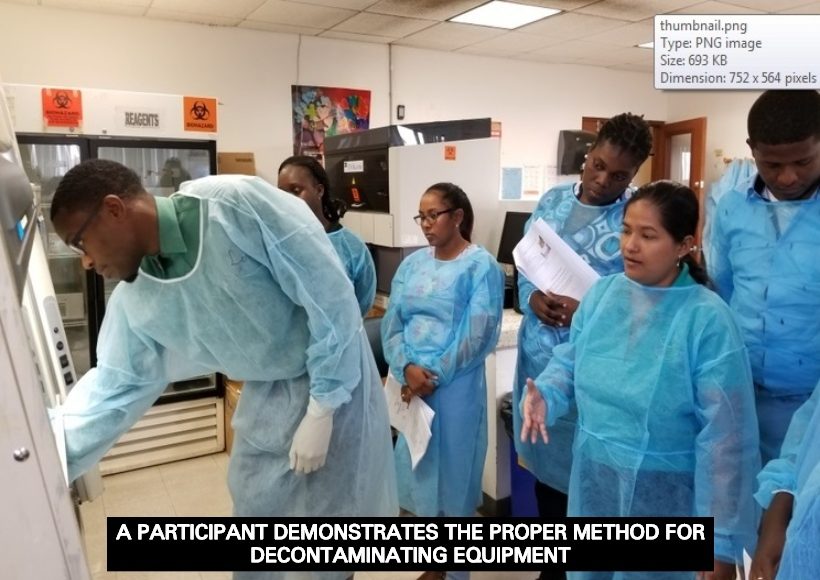The Ministry of Public Health (MOPH) in collaboration with the Caribbean Public Health Agency (CARPHA) recently concluded a five-day Train-the-Trainer workshop (February 25 – March 1, 2019) for laboratory professionals, with the intent to improve local and national capacities to safely respond to emergency or outbreak situations.
Twenty-seven persons representing a wide range of public and private laboratories, including from Agriculture, Health and Regions One to Seven and Nine and 10, have been trained to handle and ship infectious materials internationally and support local outbreak response.
Laboratories play a critical role in the detection of, and response to diseases in the population and the wider Region. Samples are routinely sent to the CARPHA laboratory based in Port-of-Spain, Trinidad for surveillance which gives information about the various diseases which are in circulation at any point in time. This is important to maintain the success of public health programmes such as the elimination of vaccine preventable illnesses such as measles, rubella and polio; and monitor the presence of mosquito borne diseases like dengue and zika.
The timeliness of this workshop, funded by the Inter-American Development Bank (IDB) to strengthen Regional Health Security was highlighted during opening remarks from Dr. Julian Amsterdam, Director, Standards and Technical Services, Ministry of Public Health. Dr. Amsterdam noted that countries are required to have national capacities in place to fulfil requirements of the World Health Organization International Health Regulations. Mr. Glendon Fegenay, Deputy Permanent Secretary-(Finance), Ministry of Public Health, stressed the significance of developing a culture of safety as the common man using their services trusted the laboratories to have safe operations.
The workshop, facilitated by Ms. Sacha Wallace-Sankarsingh, Biorisk Manager of CARPHA, included practical sessions on the use of laboratory safety equipment and key operational requirements all laboratory facilities must have in place. Ms. Joyce Whyte-Chin, National Focal Point, Laboratory Biosafety and Biosecurity and the team from the Regional Support Services Unit, within the Public Health Ministry will continue to support the new trainers as they return to their institutions to train others and implement recommended strategies for safer, more secure working environments which benefit the community.













